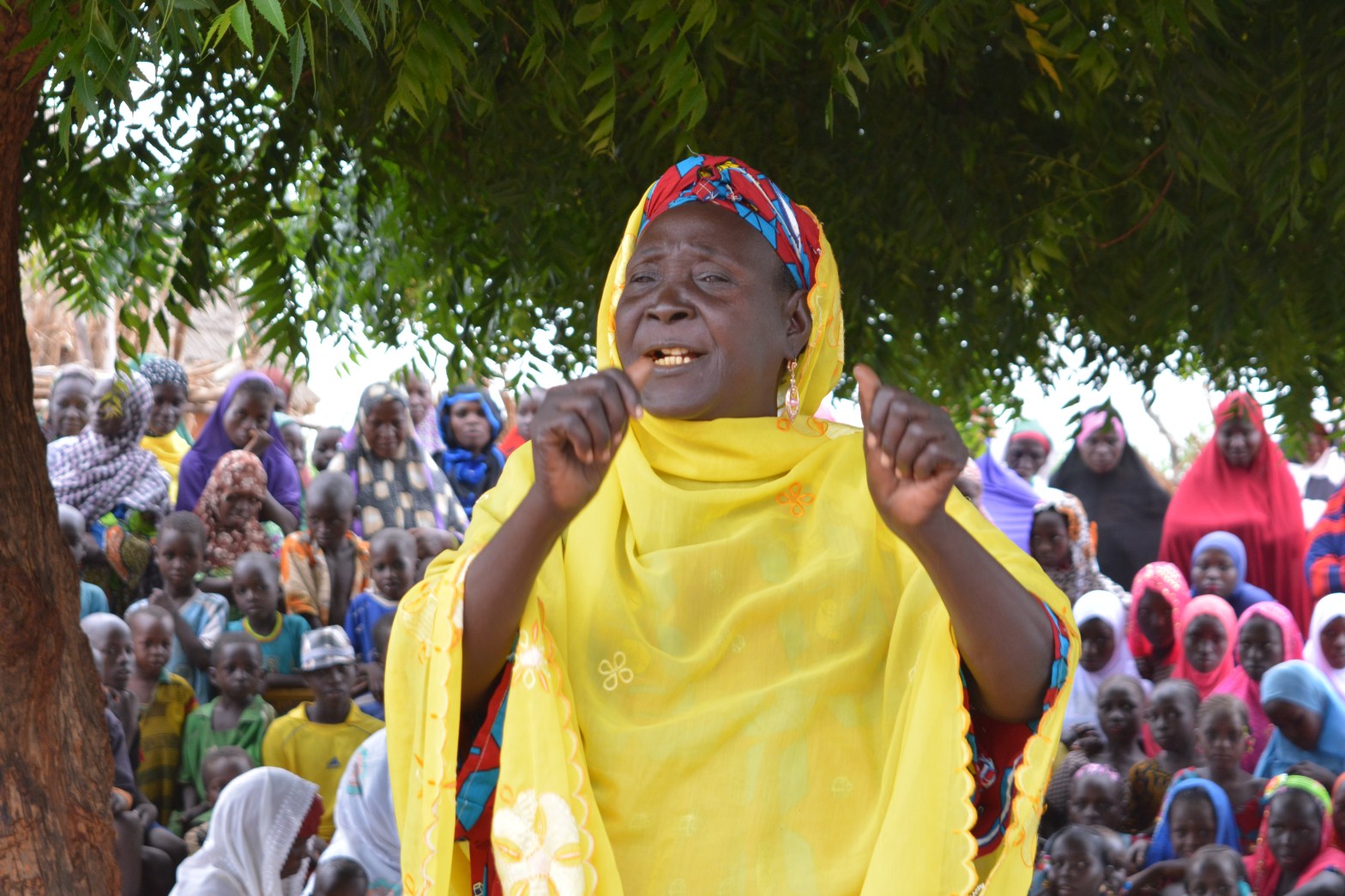Societies that give women the space to participate fully in political and socio-economic life are among the most resilient and peaceful. There is mounting evidence that peacemaking and peacebuilding are more successful when women are involved. Nevertheless, women’s contributions to peace and security are still often outside the mainstream of formal efforts, and too frequently undervalued. To alleviate this mismatch, the United Nations Peacebuilding Commission (PBC) has been giving more space to women making such contributions in challenging contexts.
In 2016, the PBC adopted a Gender Strategy to ensure systematic integration of gender perspectives in the Commission’s country and region-specific engagements and thematic discussions, as well as in dialogues with other intergovernmental organizations. The PBC recently committed to enhancing implementation of its Gender Strategy by more systematically engaging women and representatives of women’s groups in PBC meetings, streamlining gender dimensions of peacebuilding in its country-specific and regional activities and within the Commission’s analysis and advice to other UN intergovernmental bodies – something that Anita Bhatia, Deputy Executive Director for Resource Management, Sustainability and Partnerships at UN Women, called a “significant shift in the mindset and support to the Women Peace and Security agenda”.
Under-Secretary-General for Political and Peacebuilding Affairs Rosemary DiCarlo, during a 2 October PBC meeting, called for dedicated and predictable capacity and financing to realize the full implementation of the Women, Peace and Security agenda. To this end, the Secretary-General’s Peacebuilding Fund (PBF) has allocated 40 per cent of its total investments to gender-responsive peacebuilding every year. That’s more investments in promoting women and youth engagement than any other pooled fund in the UN system.
On the occasion of the 20th anniversary of resolution 1325, Politically Speaking is highlighting the essential work of women peacebuilders, including in response to the COVID-19 pandemic. We recently spoke to Patience Ikpe Obaulo, Head of Programs for the West Africa Network for Peacebuilding in Nigeria, and Irma Citalán, member of the Platform for Indigenous’ Women’s Political Dialogue, an indigenous women’s incidence network in Guatemala, working to increase political indigenous women’s participation, their inclusion in governmental programmes, and increase social accountability to promote the fight against corruption. They both participated in the latest meeting of the PBC, held on 2 October.
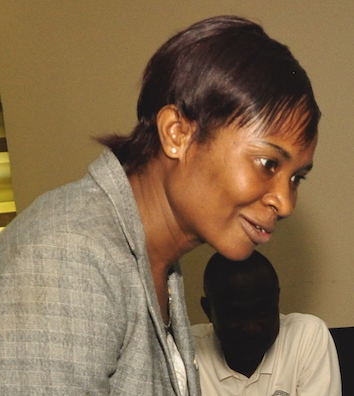
Patience Ikpe Obaulo
Patience Ikpeh Obaulo is the Head of Programs for the West Africa Network for Peacebuilding (WANEP- Nigeria). Patience has worked extensively on implementing the localization of United Nations Security Council Resolution (UNSCR) 1325 within local communities in African countries, especially working with community women, youth leaders and women-focused non-governmental organization within conflict prone communities across Nigeria.
Could you tell us about some of the challenges that you were faced with within your country on implementing the Women, Peace and Security agenda?
Patience Ikpe Obaulo: In Nigeria some of the challenges we are faced with implementing the Women, Peace and Security agenda include the absence of a comprehensive national legislation on women and conflict, as the Nigerian laws and policies do not currently sufficiently address gender-based violence in the context of conflict. Abuses against displaced women and girls have generally been perpetrated with impunity, and a majority of displaced women and girls do not have adequate access to physical, legal and social protections. The proliferation of small arms and light weapons that exacerbate armed violence presents a further challenge to peace and security in the country and heightens risk to and vulnerability of women to further violent abuse. There is also no comprehensive database that can be used to adequately reflect the true picture of gender-based violence before, during and after armed conflict. In the absence of such a database, the severity of the armed conflicts’ effect on women may not be fully appreciated and hence not taken seriously by policy makers. And finally, women local peace initiatives are oftentimes not implemented due to unavailability of funds. Although some states have State Action Plans and Local Action Plans on UN Security Council Resolution (UNSCR) 1325, there are no dedicated budgets to promote implementation of these developed plans.
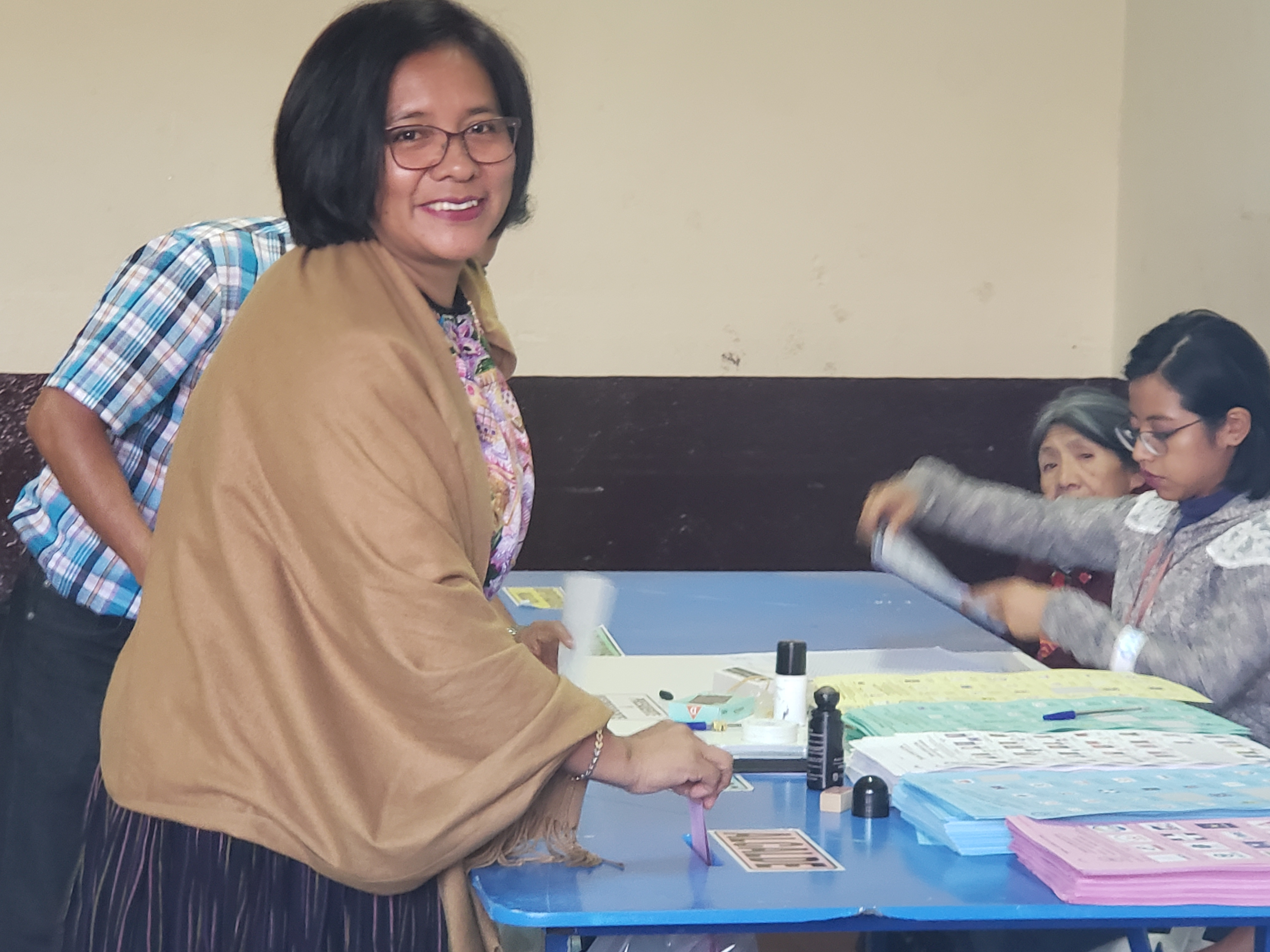
Irma Catalina Citalán Coyoy
Irma Citalan is a k’iche’ indigenous leader born in Quetzaltenango, Guatemala. She was the first in her family to receive a professional degree and has been recognized as a distinguished public servant, breaking stereotypes and opening doors for professional Mayan women in Guatemala. Ms. Citalan is a member of Naleb, one of the strongest indigenous peoples’ networks working to increase political participation and increase social accountability to promote the fight against corruption and the Platform for Indigenous’ Women’s Political Dialogue, an incidence network to incorporate indigenous women’s rights, proposals, and concerns in the public and peace agenda.
Irma Citalán: One of the challenges I personally faced, was first of all, being the last child in a family of eleven children, which meant obeying and serving older siblings. My opinion was worthless. That was my first challenge in my own family. I also had to overcome socio-cultural patterns of being a housewife – learn to cook and prepare for when the time comes to get married to be a good wife, who knows how to serve her husband. Another challenge was overcoming poverty and obtaining a higher education. Despite the reality of poverty, I knew that I did not want to be like my mother, I wanted to be different. From an early age I knew the value of work, how to earn money with effort and hard work.
I also had to overcome barriers of discrimination and racism for being a woman, young and indigenous. I was very young when I held my first management position in the State of Guatemala and looked even younger. It was difficult because there were meetings that I directed where some of the colleagues were twice my age. It was annoying for them to have a young indigenous woman leading the meeting. Seeing a woman, and an indigenous woman at that, in a management position arouses discriminatory, racist and mocking comments such as “let’s see if you can” and they wait for the first mistake to point it out. This has been a constant challenge in my entire professional career.
Another challenge for women is the lack of opportunities to choose positions in the public administration. Currently in the Executive Branch there are no indigenous women in the Cabinet and only one female deputy in the Legislative Branch out of 160 seats. Achieving gender equality and inclusion of indigenous women is an aspiration in Guatemala. For all of these reasons I have chosen to advance indigenous women and girls rights, gender and ethnic equality and the empowerment of women and girls as the key elements for peace.
How did the efforts of the UN make a difference for you and other women in a similar situation? Patience Ikpe Obaulo: Since early 2011, UN Women in Nigeria provided advisory, financial and technical support to the Federal Ministry of Women’s Affairs and Social Development in regard to the development of a National Action Plan (NAP) for implementation of UNSCR 1325. A road map for the development of the NAP was agreed in August 2012 and after wide consultations with key stakeholders in the six geo-political zones, the NAP was adopted in 2013. The West Africa Network for Peacebuilding (WANEP), a regional civil society organization, was one of UN Women’s implementing partners to support the establishment of a gender-sensitive peace architecture in form of forums of dialogue, early warning systems and rapid response-mechanisms for conflict resolution in Adamawa, Gombe and Plateau states in 2018. And in 2016, WANEP, under a UN Women funded project, engaged women from border communities in the G5 Sahel Countries to become more active in early warning and other preventive mechanisms to address the issue of violent extremism. Community dialogue fora were held to support inclusive, sustainable approaches to preventing the spread of violent extremism in the Sahel through the full engagement of women and civil society actors. These fora created the platform for community women to discuss the threat of violent extremism and how they can play a constructive role in curbing radicalization. Presently, WANEP-Nigeria is participating in the Women, Dialogue and Mediation Coordination Platform, a platform initiated in 2020 by UN Women in Nigeria to facilitate collaboration among government, inter-government/international, non-governmental organizations and development partners with previous and current interventions – policy and programming – that promote women, dialogue and mediation in the context of the farmer-herder conflict and potentially broadened to include various conflicts across the country. The initiative’s priorities are aligned with the ongoing Peacebuilding Support Office (PBSO) supported Integrated Approach to Build Peace in Nigeria’s Farmer-Herder Crisis project, which also promotes gender-sensitive dialogue and mediation as a first step to resolving crisis in the project’s target states. The Platform’s joint initiatives with women focus civil society actors is already getting attention and further support for these initiatives would further strengthen the participation of women in informal and formal dialogue and mediation efforts in Nigeria.
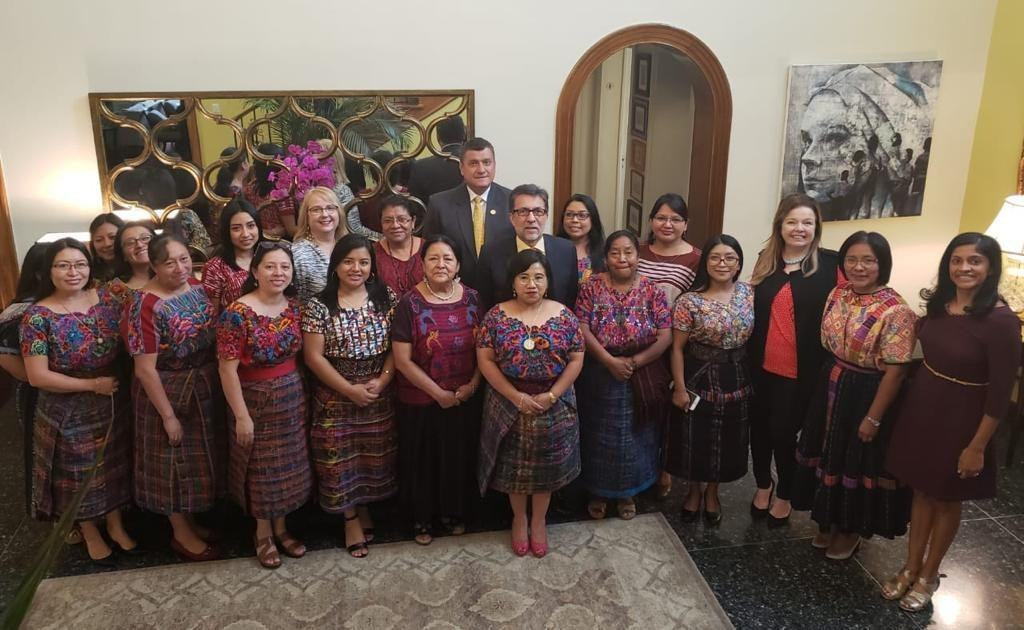
Irma Citalán: The UN has supported peace and development efforts in my country. UN Women’s actions to advance the Women, Peace and Security agenda, from the adoption of a 1325 National Action Plan to the support of the unique achievement in global gender justice of the Sepur Zarco Case, where 14 Q’eqchi’ women led the path for justice and transformative reparation of conflict-related sexual and domestic slavery in national courts, have been key for sustaining peace. The UN is also supporting our high-level dialogue with state decision-makers to incorporate indigenous women’s concerns and proposals in the public agenda. Opening spaces for indigenous women’s voices in decision making directly impacts the transformation of all those exclusions women face that are triggers of conflict. These initiatives have had the financial support of the Gender Promotion Initiative of the Peacebuilding Fund, which women recognize as the only initiative that directly invests in women’s actions to sustain peace. Investing in women makes a difference in their lives, their communities, and their countries.
What in your opinion should be the peacebuilding priorities for women and girls in your country? How do you think the UN can help in these efforts? Irma Citalán: Women’s access to justice and transformative reparation and their equal participation in political, economic, social, and cultural affairs and the decision-making levels must be part of the priorities to build and sustain peace. The continuum of violence against women fed by impunity of conflict and post-conflict related women’s human rights violations further their exclusion from peace dividends. Whereas financial targets are key for women’s direct access to UN support, more efforts are needed to ensure that the funds are actually being invested in key strategic priorities for women and girls. The recognition of women as first line political actors and the protection of women human rights defenders should also be part of the UN’s agenda for peacebuilding and for sustaining peace.
Patience Ikpe Obaulo: In my view, peacebuilding priorities for women and girls in Nigeria should be the establishment of structures to promote inclusive peacebuilding at community level; economic empowerment and access to credit for women which will allow for meaningful participation in peacebuilding; effective legislations and an effective investigative framework to address sexual and gender-based violence before, during and after conflict; enactment and formulation of appropriate laws and policies on post-conflict reconstruction and crisis management at community level and the provision of skills and knowledge on humanitarian response in conflict to mitigate the effects of conflict and effectively provide for Internally Displaced Persons. Furthermore, existing mechanisms to effectively facilitate the localization of UNSCR 1325 need to be strengthened, linkages between resolution 1325 and Nigeria’s Prevention of Violent Extremism (PVE)/Counter-Terrorism (CT) NAP strategy need to be created and a long term support fund to sustain projects aimed at promoting the Women, Peace and Security agenda in Nigeria, particularly at community level needs to be provisioned.
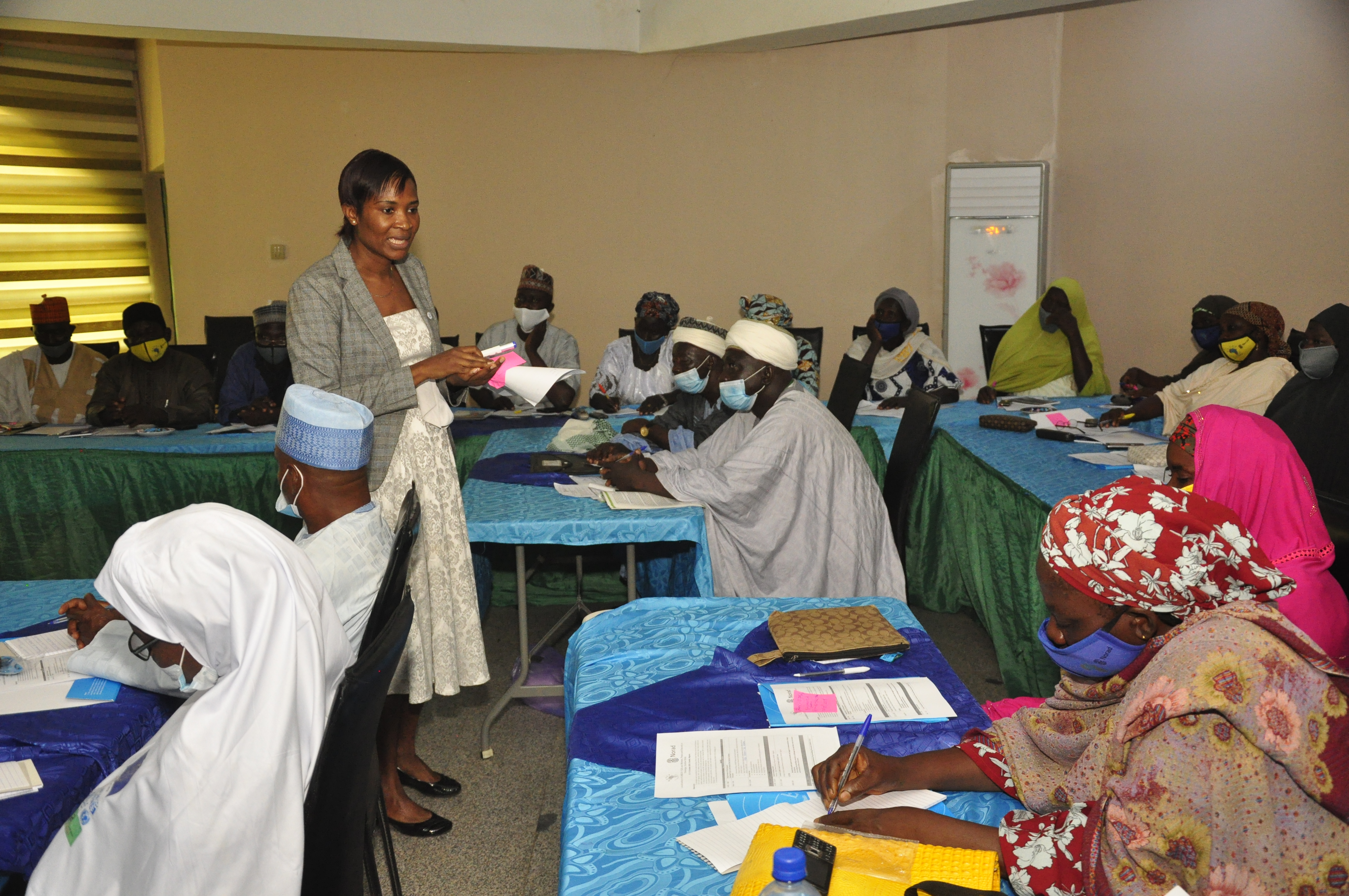
Has COVID-19 also created new opportunities for peacebuilding initiatives?
Patience Ikpe Obaulo: Yes, COVID-19 also created new opportunities as local peacebuilders are adapting their programs and integrating COVID-19 responses. Many local civil society organizations are targeting the most vulnerable groups, such as rural communities and women to distribute food palliatives, promote measures to limit the spread of the virus through sensitization programs and keep communication open among communities to maintain social cohesion in the midst of physical distancing. It has also created opportunity for young peacebuilders to project themselves at the forefront of peacebuilding through speaking out against rising incidences of sexual and gender-based violence (SGBV). They are at the core of shaping more resilient societies for the future.
Irma Citalán: The call to build back better provides an opportunity to ensure the inclusion of indigenous peoples and indigenous women in consultation mechanisms in all national processes and transform the exclusions we have faced for generations, regaining the peace accord’s commitments to advance women and indigenous peoples’ rights. In Guatemala, the UN recovery plan has incorporated programs directly addressed to support rural and indigenous women and girls’ needs, including the reactivation of women’s economic and political initiatives and their access to digital means and cybersecurity which is particularly relevant to close the gender and ethnic gap. Our concern is that they don´t get funded.
Do you have examples of solutions in Guatemala and Nigeria to protect women’s rights and tackle the COVID-19 pandemic? Patience Ikpe Obaulo: WANEP-Nigeria has continued to advocate for protective measures and prioritization of the needs and rights of the vulnerable. Through its COVID-19 sensitization program, the organization has been at the forefront of combatting misinformation and ensuring that hard to reach communities get the appropriate information about the nature of the virus and existing preventive measures. Also, WANEP-Nigeria has supported the distribution of food and non-food palliatives including face masks, hand sanitizers, hand wash, buckets and IEC materials to vulnerable communities targeting widows, women and children.
WANEP-Nigeria has set up a community radio program titled “Let’s Talk COVID-19 and SGBV” which started in July 2020. The program provides a platform for women to listen and air their views on Sexual and Gender Based Violence (SGBV) issues, to foster prompt mobilization of professional service providers and officials to respond to the situation. The radio program also educates on existing policies and laws that address sexual violence and links to appropriate agencies to seek redress.
Irma Citalán: Whereas women, particularly indigenous and rural women, are at the forefront of addressing the COVID-19 pandemic, especially with traditional medicine, they are not usually consulted or included in decision making. In the confinement, they faced difficulties to report sexual and other forms of gender-based violence, as most of them were cohabiting with their perpetrators, lost income sources and the connection with their social networks. Those who were privileged with access to cellular phones or other digital means lost their capacities to maintain the (paid) services.The Platform for Indigenous’ Women’s Political Dialogue in Guatemala has bridged the voices of indigenous and rural women and the governmental decision makers, in the hope that they would be heard and that their rights would be guaranteed in response to the current health, social and economic crisis. With UN Women’s support, regular monitoring exchanges between organized women, women’s municipal offices and women’s mechanisms, justice institutions and the executive ministries involved in the COVID-19 response were established to ensure women´s access to information and feed into the institutional responses during the crisis. With the knowledgeable support from UN Women, the Humanitarian Country Team incorporated actions to address the loss of women’s economic, political and social autonomies in their COVID-19 Response Plan, including women’s access to justice and security, to information and communication technology. The imperative now is to implement sustainable projects at scale that contribute to changing the extremely uneven indicators for indigenous girls.
What do you think should be done to empower women and to include them in the peacebuilding process in the region?
Irma Citalán: The force of women’s mobilization is an asset to regional and international peace movements. Support their organizational networking efforts to advance their rights and represent themselves in decision making spaces! We need to make sure the high-level dialogue in New York is translated at country level with funding and political support.
Patience Ikpe Obaulo: Funds to support local women peacebuilding efforts directly, particularly those in communities affected by violent extremism are needed, as well as documentation and recognition of women’s peacebuilding efforts at the local level. This will give visibility to initiatives by women to promote peace within communities. We also need to connect the Women, Peace and Security agenda with other key issues such as access to land, economic empowerment, child rights, etc. This will ensure women’s key concerns are taken into consideration and boost their self-esteem for effective participation in peacebuilding initiatives. Legislation has to be enacted and amended where necessary in order to improve the situation of women in Nigeria and internally displaced women in accordance with international instruments and standards. We need dedicated budgets to ensure implementation of resolution 1325 at the state and local levels, comprehensive national legislation to stop the proliferation of small arms and increased access for peacebuilders to power, phones, internet, radio, online platforms, and other communication tools during this COVID-19 era, which should include supporting the development of innovative ways of reaching local communities. In addition, inclusion of sociological, economic and psychological perspectives in humanitarian responses in the post-COVID-19 era will be necessary to enable women to heal from hurts of sexual violence and promote effective participation in peacebuilding.
Title picture: PBSO project in Niger on preventing conflict between farmers and pastoralists through women peacebuilders, August 2019. UN Photo
